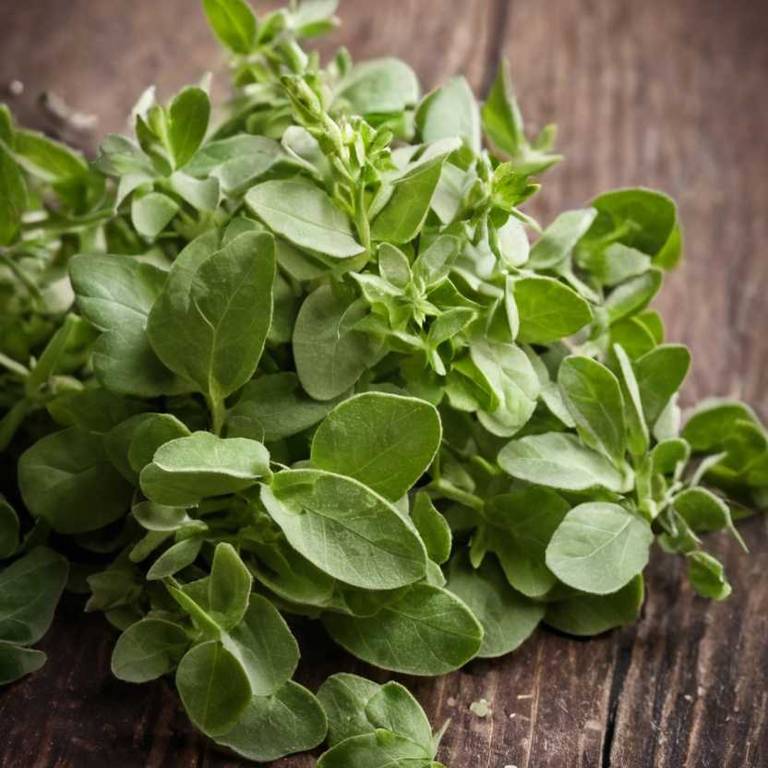Oregano (Origanum vulgare)
Oregano (Origanum vulgare) is a member of the Lamiaceae family, native to Mediterranean Region, Southern Europe, and Middle East. Traditionally, its leaves, flowers, and stems have been used for infusions, decoctions, and poultices.
This herb is particularly valued for its anti-inflammatory, carminative, and antispasmodic actions, and has a long history of use in european herbal medicine, mediterranean herbal traditions, and ayurvedic medicine.

Quick Facts / Key Information
| Common Name | Oregano |
|---|---|
| Scientific Name | Origanum vulgare |
| Plant Family | Lamiaceae |
| Genus | Origanum |
| Species | vulgare |
| Native Range | Mediterranean Region, Southern Europe, Middle East |
| Plant Parts Used | Leaves, Flowers, Stems |
| Primary Medicinal Actions | Anti-Inflammatory, Carminative, Antispasmodic |
| Primary Traditional Systems | European Herbal Medicine, Mediterranean Herbal Traditions, Ayurvedic Medicine |
| Historical Preparation Methods | Infusion, Decoction, Poultice |
Botanical Identity
- Scientific Name
- Origanum vulgare
- Common Name
- Oregano
- Synonyms / Alternative Names
- Common Oregano, Greek Oregano, Marjoram
- Plant Family
- Lamiaceae
- Genus
- Origanum
Botanical Description
- Growth Habit
- Perennial herbaceous plant.
- Height
- It typically grows to a height of 30 to 100 centimeters.
- Leaves
- Simple leaves with upper surface glabrous and pale green, lower surface glabrous and darker green, bearing distinct stomatal bands along the midrib.
- Flowers
- Inflorescence composed of solitary flowers with white to pale blue petals, actinomorphic symmetry, and five lobed corolla with prominent staminode.
- Stems
- Erect, branching habit with opposite arrangement, glabrous surface, and presence of pith in cross-section.
Traditional Uses / Historical Use
Traditional Systems
- European Herbal Medicine
- Mediterranean Herbal Traditions
Historical Preparation Methods
- Infusion
- Decoction
- Poultice
- Oil Infusion
Medicinal Actions
- Anti-inflammatory
- Traditionally described as a gentle anti-inflammatory, for irritation-related applications.
- Carminative
- As described in traditional systems, a moderate carminative, in relation to gastrointestinal comfort.
- Antispasmodic
- In herbal literature, noted as a cooling antispasmodic, for cramp-focused discussions.
- Tonic
- In herbal texts, considered a soothing tonic, in whole-system applications.
Active Compounds
- Essential Oil
- Volatile plant-derived substances commonly present in leaves and flowers.
- Flavonoid
- A group of naturally occurring compounds commonly present in many flowering plants.
- Phenolic Acid
- Simple phenolic molecules widely distributed across plant tissues.
- Terpenoid
- A diverse group of organic compounds present in many aromatic plants.
Modern Research Overview
Scientific literature concerning this plant spans multiple areas, including phytochemistry and laboratory research. Detailed analysis of published studies is not included at this time and will be added as part of future editorial expansion.
Safety & Contraindications
- General Precautions
- Some general precautions have been associated with the use of this herb.
- Contraindications
- Available information does not clearly establish contraindications for the use of this herb.
- Allergies
- There is insufficient evidence to determine whether this herb commonly causes allergic reactions.
- Drug Interactions
- There is insufficient evidence to determine whether this herb interacts with pharmaceutical drugs.
- Toxicity
- Reports of toxicity related to this herb are not well documented in available literature.
- Pregnancy & Breastfeeding
- Safety during pregnancy and breastfeeding has not been well documented.
Preparation & Usage Methods
- Infusion
- Dried or fresh plant parts are infused in hot water and consumed as a beverage.
- Decoction
- This method uses sustained heat to extract compounds from firm plant structures.
- Poultice
- This method uses direct contact between plant material and the skin.
- Capsule
- Capsules contain measured amounts of dried, ground plant material.
- Infused Oil
- Plant material is steeped in oil to transfer fat-soluble compounds.
Growing, Harvesting & Storage
Growing / Cultivation
- Soil
- Prefers loamy soil with well-drained conditions. Typically grows best in organically rich soils.
- Sunlight
- Thrives in full sun. Tolerates full sun to partial shade.
- Watering
- Prefers well-balanced moisture levels. Tolerates periodic dry conditions.
Medical Disclaimer
The information provided on this page is for educational and informational purposes only. It is not intended to diagnose, treat, cure, or prevent any medical condition. Always consult a qualified healthcare professional before using any herb for medicinal purposes.